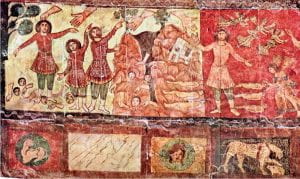Please join the Jewish Studies Workshop at 5pm on Thursday, April 18th in Swift 200 for a workshop with Professor Lana Povitz (Assistant Professor of History, Middlebury College). She will be presenting work in progress from her forthcoming biography of Shulamith Firestone, and Maggie Goldberger (PhD Student, Divinity) will be responding.

Gifted with creativity and insight, Shulamith Firestone (1945-2012) was a prime mover in the Women’s Liberation Movement of the late 1960s: a writer, theorist, organizer, and artist. Join Lana Dee Povitz to discuss a chapter-in-progress from her forthcoming biography of Firestone. The chapter uses oral history and private archival material to explore the place of sex, love, and romance in Firestone’s life, set against the evolving landscape of radical feminist thought in New York City circa 1969. Like so many feminists then and since, Firestone struggled to balance her need for autonomy against her desire for love. The Dialectic of Sex, Firestone’s landmark book published in 1970, was inspired in no small part by her lived experience of heterosexual relationships as a site of power and powerlessness.
Lana Dee Povitz is Assistant Professor of History and Jewish Studies at Middlebury College. Her first book, Stirrings: How Activist New Yorkers Ignited a Movement for Food Justice, was published by UNC Press in 2019. Learn more at www.lanadeepovitz.com.
The paper, to be read in advance of the workshop, has been circulated via the Jewish Studies email list, which you can subscribe to at https://lists.uchicago.edu/web/home. If you plan to participate in the workshop, and have not received the paper, please contact Kirsten Collins at kirstenc@uchicago.edu






 “Multiculturalism and the Right of Exit”
“Multiculturalism and the Right of Exit”